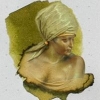Search the Community
Showing results for tags 'green-brown'.
-
Robert Oster Signature - Khakhi Robert Oster is an Australian ink maker that is well-known for his unique range of colours. On his website, he describes our shared love quite eloquently: "Robert Oster Signature originates from one of the most famous wine producing regions of the world, the Coona...
- 5 replies
-
- robert oster
- signature
-
(and 2 more)
Tagged with:
-
http://i900.photobucket.com/albums/ac209/jasonchickerson/_FUJ0627-2.jpg http://i900.photobucket.com/albums/ac209/jasonchickerson/_FUJ0627.jpg http://i900.photobucket.com/albums/ac209/jasonchickerson/_FUJ0627-3.jpg http://i900.photobucket.com/albums/ac209/jasonchickerson/_FUJ0622_1.jpg #74 wi...



